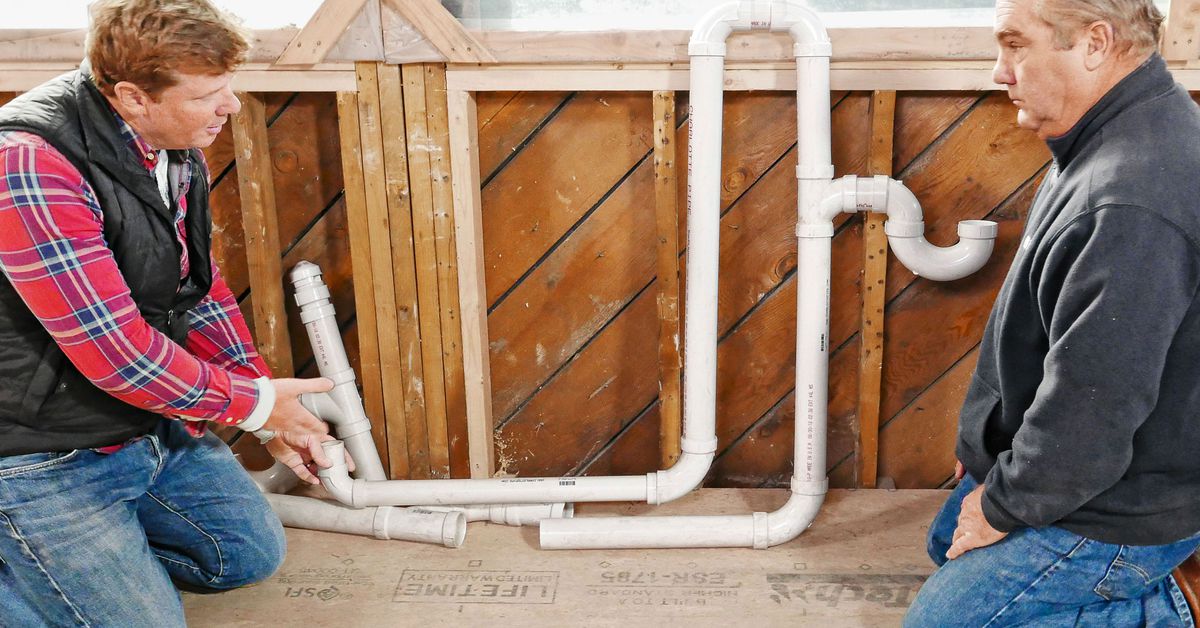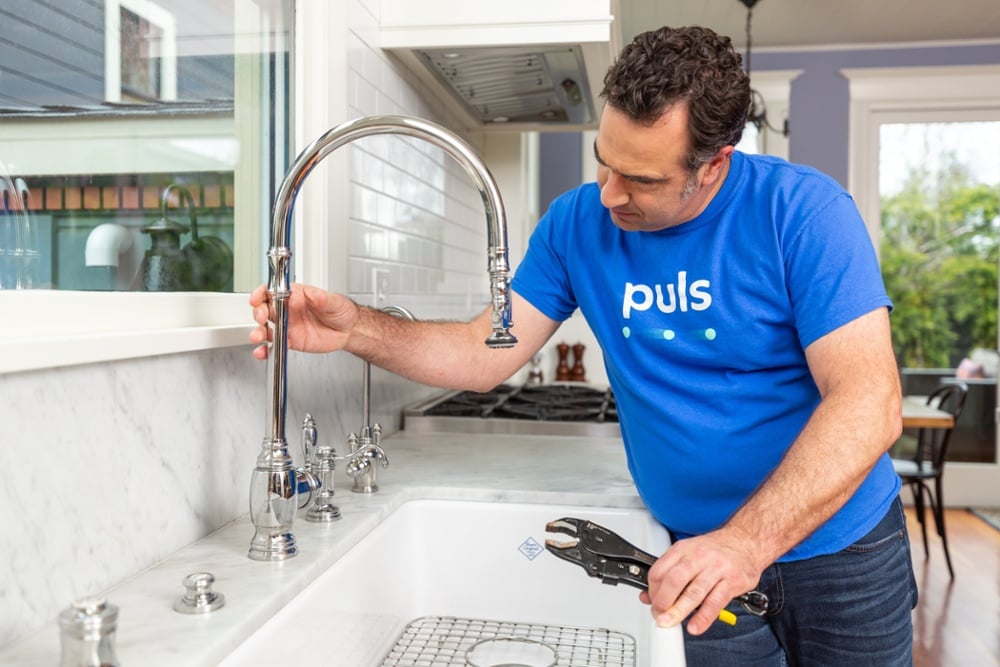How To Put an End to Irritating Plumbing Noises
How To Put an End to Irritating Plumbing Noises
Blog Article
Each person maintains his or her own way of thinking involving Why is My Home Making Strange Plumbing Noises.

To detect noisy plumbing, it is very important to establish first whether the unwanted sounds occur on the system's inlet side-in other words, when water is turned on-or on the drainpipe side. Sounds on the inlet side have actually differed reasons: extreme water stress, used shutoff as well as faucet parts, incorrectly linked pumps or other appliances, improperly positioned pipeline fasteners, and also plumbing runs containing a lot of limited bends or various other constraints. Sounds on the drainpipe side normally come from bad area or, similar to some inlet side sound, a format containing limited bends.
Hissing
Hissing sound that happens when a faucet is opened somewhat generally signals extreme water stress. Consult your local public utility if you think this trouble; it will have the ability to inform you the water stress in your area as well as can mount a pressurereducing valve on the incoming supply of water pipeline if needed.
Other Inlet Side Noises
Squeaking, squealing, scraping, snapping, as well as tapping generally are caused by the development or tightening of pipes, usually copper ones supplying hot water. The noises take place as the pipes slide against loose bolts or strike neighboring house framework. You can frequently determine the area of the trouble if the pipelines are revealed; simply comply with the sound when the pipes are making sounds. Most likely you will find a loosened pipeline hanger or an area where pipelines lie so close to flooring joists or other framing items that they clatter versus them. Affixing foam pipeline insulation around the pipes at the point of contact ought to treat the trouble. Make sure bands and also wall mounts are safe as well as provide appropriate support. Where possible, pipeline fasteners should be attached to massive architectural elements such as structure walls as opposed to to mounting; doing so minimizes the transmission of resonances from plumbing to surface areas that can intensify and transfer them. If attaching fasteners to framework is unavoidable, wrap pipelines with insulation or other durable product where they contact fasteners, as well as sandwich the ends of new fasteners between rubber washers when mounting them.
Fixing plumbing runs that experience flow-restricting limited or numerous bends is a last resort that ought to be undertaken only after getting in touch with a proficient plumbing professional. Sadly, this scenario is rather usual in older homes that may not have actually been built with interior plumbing or that have actually seen several remodels, specifically by amateurs.
Babbling or Screeching
Extreme chattering or shrieking that takes place when a valve or faucet is switched on, which usually vanishes when the installation is opened totally, signals loosened or defective internal parts. The option is to change the shutoff or faucet with a new one.
Pumps and also devices such as cleaning equipments and also dishwashers can move electric motor noise to pipes if they are improperly linked. Link such things to plumbing with plastic or rubber hoses-never rigid pipe-to isolate them.
Drain Sound
On the drainpipe side of plumbing, the principal goals are to get rid of surfaces that can be struck by falling or hurrying water and also to shield pipes to contain unavoidable sounds.
In new building, bathtubs, shower stalls, toilets, and wallmounted sinks and also containers ought to be set on or versus durable underlayments to decrease the transmission of audio via them. Water-saving toilets and also faucets are less loud than conventional versions; install them instead of older types even if codes in your location still permit making use of older fixtures.
Drains that do not run vertically to the cellar or that branch into straight pipeline runs supported at flooring joists or various other framing existing particularly bothersome noise issues. Such pipelines are huge sufficient to radiate considerable vibration; they additionally lug significant amounts of water, that makes the circumstance even worse. In brand-new building and construction, define cast-iron soil pipelines (the huge pipes that drain pipes bathrooms) if you can manage them. Their massiveness includes a lot of the noise made by water passing through them. Also, avoid transmitting drainpipes in wall surfaces shown to bedrooms and areas where individuals gather. Walls including drains need to be soundproofed as was defined earlier, using double panels of sound-insulating fiberboard as well as wallboard. Pipes themselves can be wrapped with special fiberglass insulation produced the objective; such pipes have an impervious vinyl skin (sometimes consisting of lead). Results are not always satisfactory.
Thudding
Thudding sound, frequently accompanied by shivering pipes, when a faucet or appliance shutoff is turned off is a problem called water hammer. The sound and resonance are caused by the reverberating wave of pressure in the water, which instantly has no area to go. In some cases opening up a shutoff that releases water swiftly into a section of piping including a restriction, elbow, or tee installation can create the exact same condition.
Water hammer can generally be treated by installing fittings called air chambers or shock absorbers in the plumbing to which the trouble valves or faucets are attached. These devices permit the shock wave developed by the halted flow of water to dissipate airborne they contain, which (unlike water) is compressible.
Older plumbing systems might have brief vertical areas of capped pipe behind walls on tap runs for the exact same objective; these can eventually full of water, lowering or destroying their performance. The treatment is to drain the water supply entirely by shutting down the major supply of water valve as well as opening up all taps. After that open up the main supply shutoff and shut the faucets one by one, starting with the tap nearest the shutoff and finishing with the one farthest away.
3 Most Common Reasons for Noisy Water Pipes
Water hammer
When water is running and is then suddenly turned off, the rushing liquid has no place to go and slams against the shut-off valve. The loud, thudding sound that follows is known as a water hammer. Besides being alarming, water hammer can potentially damage joints and connections in the water pipe itself. There are two primary methods of addressing this issue.
Check your air chamber. An air chamber is essentially a vertical pipe located near your faucet, often in the wall cavity that holds the plumbing connected to your sink or tub. The chamber is filled with air that compresses and absorbs the shock of the fast moving water when it suddenly stops. Unfortunately, over time air chambers tend to fill with water and lose their effectiveness. To replenish the air chambers in your house you can do the following. Turn off the water supply to your house at the main supply (or street level). Open your faucets to drain all of the water from your plumbing system. Turn the water back on. The incoming water will flush the air out of the pipes but not out of the vertical air chamber, where the air supply has been restored. Copper pipes
Copper pipes tend to expand as hot water passes through and transfers some of its heat to them. (Copper is both malleable and ductile.) In tight quarters, copper hot-water lines can expand and then noisily rub against your home's hidden structural features — studs, joists, support brackets, etc. — as it contracts.
One possible solution to this problem is to slightly lower the temperature setting on your hot water heater. In all but the most extreme cases, expanding and contracting copper pipes will not spring a leak. Unless you’re remodeling, there's no reason to remove sheetrock and insert foam padding around your copper pipes.
Water pressure that’s too high
If your water pressure is too high, it can also cause noisy water pipes. Worse, high water pressure can damage water-supplied appliances, such as your washing machine and dishwasher.
Most modern homes are equipped with a pressure regulator that's mounted where the water supply enters the house. If your home lacks a regulator, consider having one professionally installed. Finally, remember that most plumbers recommend that water is delivered throughout your home at no lower than 40 and no greater than 80 psi (pounds per square inch).
Whatever the state of your plumbing, one thing is certain — you’re eventually going to encounter repair and replacement issues around your home that require professional help. That’s where American Home Shield can come to your aid.
https://www.ahs.com/home-matters/repair-maintenance/causes-of-noisy-water-pipes/

I ran across that blog entry about Why Do My Pipes Make Noises when exploring the search engines. Enjoyed our entry? Please share it. Help other people find it. Thank you for taking the time to read it.
Schedule Your Service Report this page